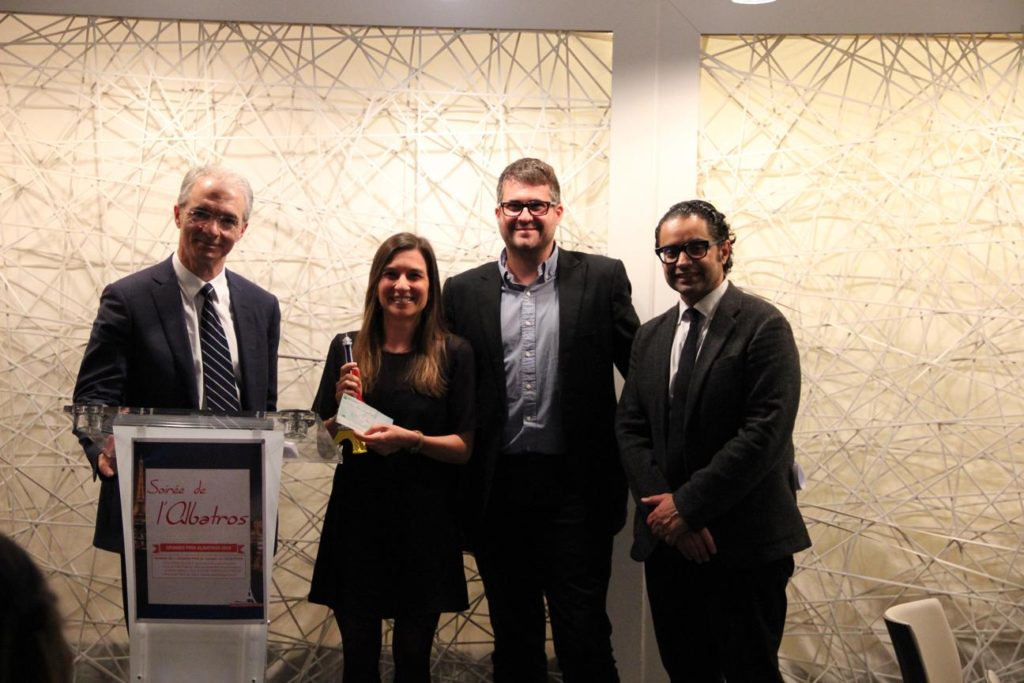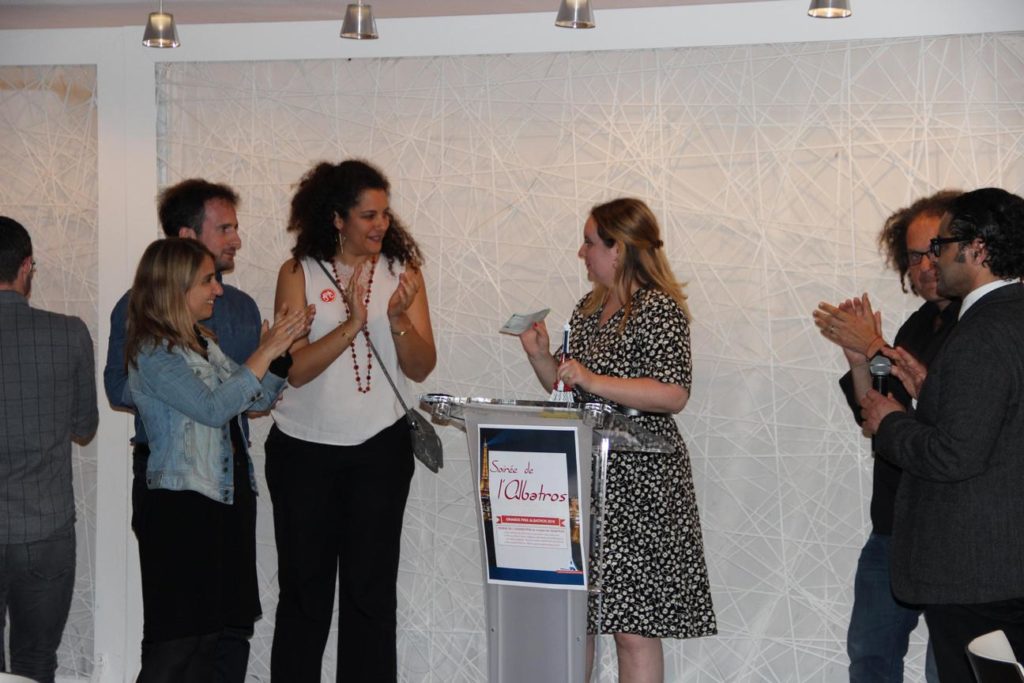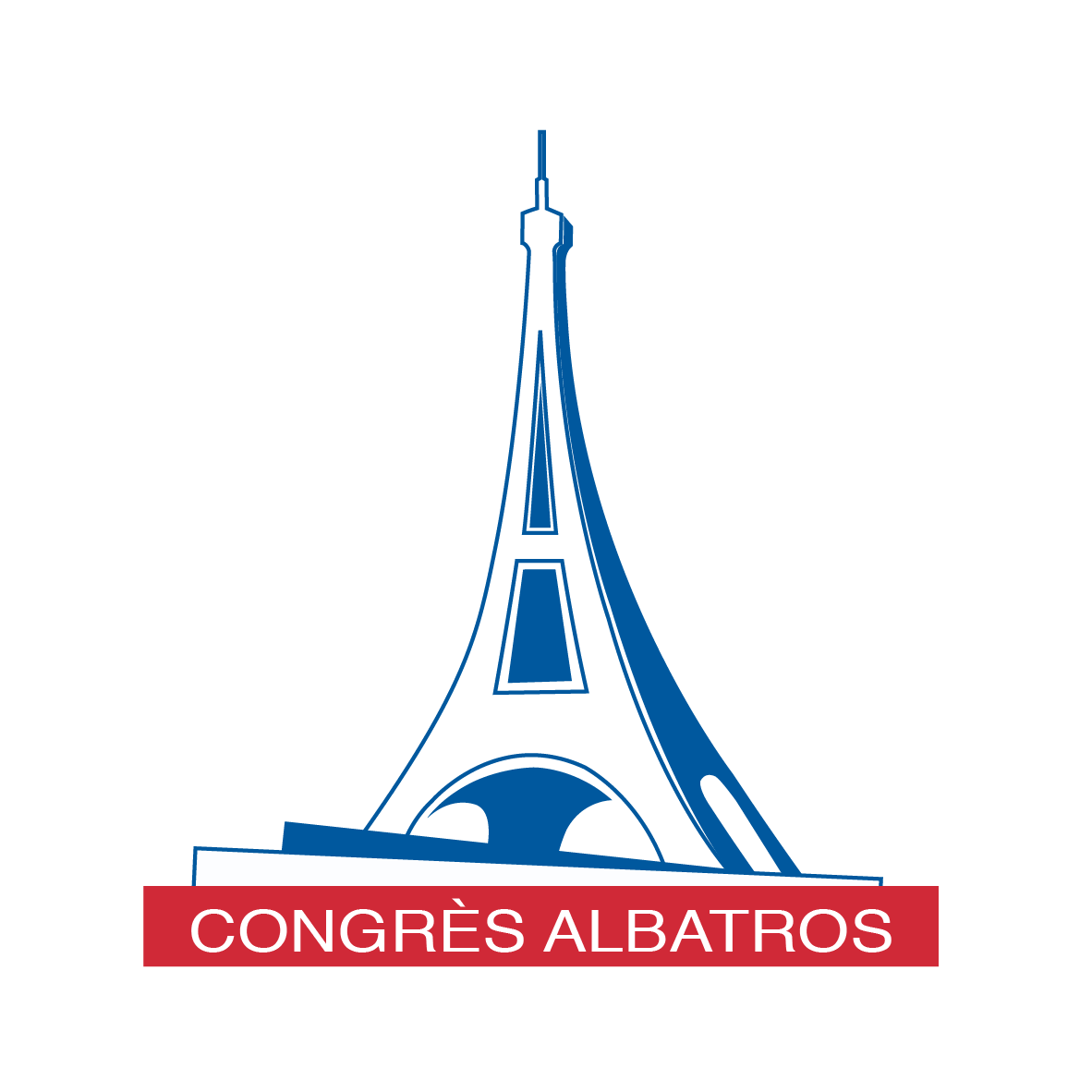2019 Edition
2019 press releases

THE 3 GRAND PRIX DE L’ALBATROS 2019

· The ANPAA Award for “Prevention of addictions “ has been delivered to:
Jérôme Jeanblanc, UMR Inserm 1247, Amiens : « S (-) – baclofen counteracts the positive effects of R (+) baclofen in alcohol dependence: the origins of the problem? “
Studies to assess the efficacy of (±) -baclofen (racemic R (+) and S (-) form) in the treatment of alcohol dependence have yielded mixed results and lively debate over the benefit ratio. / risk at international level. Recent studies have suggested that the different enantiomers may help explain the contrasting results and the high variability in response to treatment. Jérôme Jeanblanc was interested in the efficacy of each of the enantiomers on the self-administration of alcohol in a population of control and alcohol-dependent rats. It was shown that the R (+) form is more effective in reducing alcohol consumption, craving and relapse than the racemic form and at a lower dose (1.5 mg / kg vs. 2 mg/kg).
JURY MEMBERS
Prof. Marc Auriacombe, Bordeaux University Hospital
Prof. Nicolas Franchitto, Toulouse University Hospital
Prof. François Paille, University Hospital of Nancy
· The Price of the “Best performance approach in public health, with the institutional support of GILEAD , has been delivered to:
Louise-Adélaïde Jakubiek, University of Bordeaux: « Impact of decision-making capacities on 3-months treatment outcome among patients treated for cannabis use disorder »
Studies have shown that performance on decision-making ability tests can be impaired by the use of cannabis. And this alteration could be a brake on the response to drug addiction treatments, due to poor adherence and / or a decrease in the effectiveness of the treatment. Louise-Adelaïde Jakubiek conducted a study to assess the impact of decision-making capacity on the response to treatment for cannabis addiction after three months. And the results show that the decision-making capacity, measured by ’Iowa Gambling Task (IGT), represents a prognostic factor in patients starting outpatient treatment.
JURY MEMBERS
Dr Arkaitz Colina, CSAPA Bizia
Prof. Nicolas Simon, Marseille University Hospital
Prof. Benoît Trojak, Dijon University Hospital

· The Special ALBATROS Prize for Junior Addictology, in partnership with AJPJA and AFFEP ,has been delivered to:
Cléo Jouault,Corentin Celton hospital, Issy les Moulineaux: “Addict’O Quizz: Development of a serious game for the reduction of the risks associated with the use of cannabis “
Patients hospitalized for alcohol withdrawal tend not to see their other uses as problematic, with an increased risk of transferring substances, especially on cannabis. In the short-stay weaning unit, it is difficult to offer effective therapeutic education on reducing the risks associated with the consumption of other substances. In fact, patients frequently present with cognitive disorders linked to the use of alcohol, which makes them difficult to access conventional group information. In recent years, “SERIOUS GAME” (SG) have emerged in therapeutic education. Cléo Jouault developed an SG in the form of a cannabis board game and conducted a pre-experimental study to validate the SG over one month. The results show greater satisfaction for patients subjected to ILI with an interest in playful interactions with other patients. These results are encouraging for the development of SG in addictology care for patients with cognitive disorders.
JURY MEMBERS
This is not a classic jury. The prize was awarded following the “The Voice of Addiction” session which takes place during the congress.

ALBATROS 2019: PRESS INVITATION
Professor Amine BENYAMINA is pleased to invite you to the 13th edition of the International Congress of ALBATROS which will be held Wednesday 5, Thursday 6 and Friday 7 June 2018 aat the Brongniart Event Center (Paris 2e).
The ALBATROS congress is an unmissable event in the field of addictology. It brings together actors from all walks of life: academics, clinicians, researchers. This is the opportunity to meet the world’s top experts to discuss current issues.
This year, the theme will be: “Addictions: a challenge for society, science and politics” . “To the old challenges we must now add new ones, which affect the diversity of uses of classic and new products as well as substance-free addictions or the misuse of drugs, the major consequences of which we have seen in the United States. in terms of mortality and reduction in life expectancy ”, underlines Prof. Benyamina.
Many topics will be discussed, including:
– Alcohol-related liver disease. While the deaths due to these diseases have been divided by 4 in France for 50 years, they have on the contrary been multiplied by 4 in England . Nick Sheron (University of Southampton, England) will explain the reasons for these differences.
– Ivan Montoya (NIDA-National Institute on Drug Abuse, USA) will present the most promising drugs in addictive disorders .
– Nancy Rigotti (Harvard Medical School, USA)will take stock of the latest news about electronic cigarettes.
– Antonello Bonci (Johns Hopkins School of Medicine, USA) will reveal the results of a study on transcranial stimulation in people addicted to cocaine . Expected results since there is currently no treatment for this addiction.
“Scientific advances must not obscure the need to put the patient back at the heart of our practice,” insists Prof. Benyamina. That will be the whole point of the debate entitled “Human rights, the other treatment”, which will take place at the end of the congress.
This year, 3 Grand Prizes will be awarded:
- ALBATROS Prize for Addiction Prevention
- ALBATROS Prize for the best performance approach in public health
- ALBATROS Special Junior Addictologist Prize
Simultaneous French-English translation is provided.
The full program and abstracts can be downloaded from the website .
We remain at your disposal for organize, if you wish, interviews during the congress with the experts present.
We look forward to welcoming you on June 5th.


